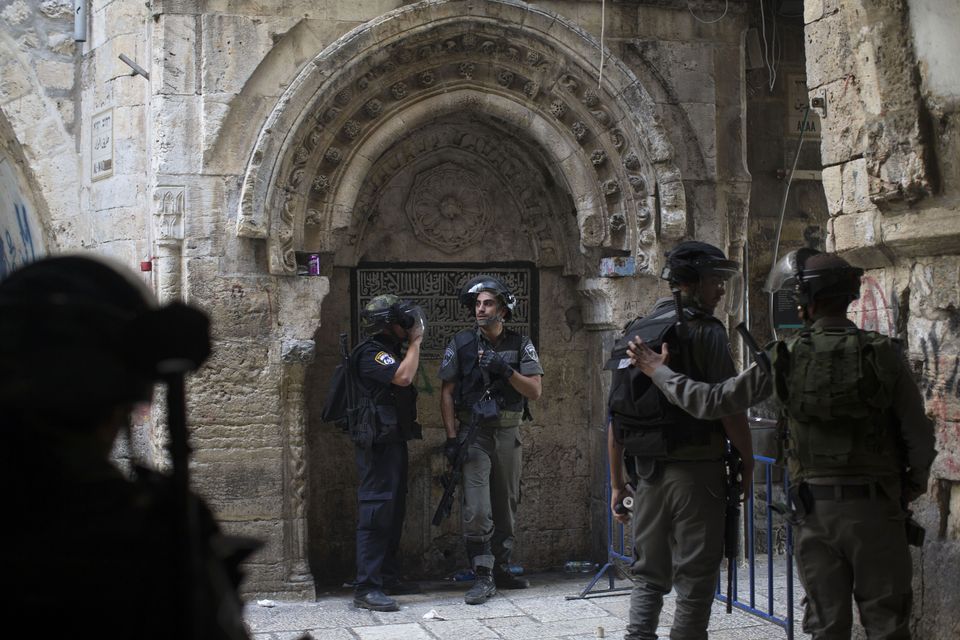

JERUSALEM: New clashes broke out Monday between Palestinians and Israelipolice who stormed Jerusalem's flashpoint Al-Aqsa mosque compound, as an expected increase in Jewish visitors to the site over the Sukkot holiday boosted tensions.
Police fired tear gas and stun grenades, while young masked protesters who had pledged a day earlier to "defend" Al-Aqsa threw stones before barricading themselves inside the mosque itself, an AFP journalist reported.
According to police, the young protesters had slept overnight at the mosque and also threw petrol bombs at security forces during the clashes, which caused a small fire at the entrance to the building.
Sources in the Jordanian-run organisation that administers the site, the Waqf, told AFP that police stun grenades provoked four fires inside the building that were brought under control.
The Palestinian Red Crescent reported 22 people wounded, with three hospitalised after being hit by rubber bullets, including one person struck in the face while inside the mosque.
Police said negotiations to have the youths leave had failed, leaving them no choice but to carry out the raid to keep them from disrupting visits to the site. Dozens of officers deployed, including on the mosque's roof.
Muslim worshippers who were at the compound after morning prayers as the raid began were forced to leave by police and all gates used by Muslims to enter the site were closed. Some remained near the gates and chanted in protest.
Regular visits by non-Muslims permitted between 7:30 am and 11:00 am were then allowed to go ahead, according to police, with 450 tourists and 24 Jews visiting. Calm later returned to the site.
- Stones and barricades -
The compound has been the scene of repeated clashes in recent weeks, provoking international calls for calm. The highly sensitive site is the third holiest in Islam but is also known to Jews as the Temple Mount, the most sacred in Judaism.
Recent weeks have seen a series of Jewish holidays which have led to an increase in visits by Jews that have sparked clashes. The same situation is feared over Sukkot, an eight-day religious feast that began on Sunday night.
Jews are allowed to visit the site, but cannot pray to avoid provoking tensions. Muslims fear Israel will seek to change rules governing the compound, which is located in Israeli-annexed east Jerusalem.
Israeli Prime Minister Benjamin Netanyahu has said repeatedly he is committed to maintaining the status quo despite the views of some hardliners within his governing coalition.
AFP